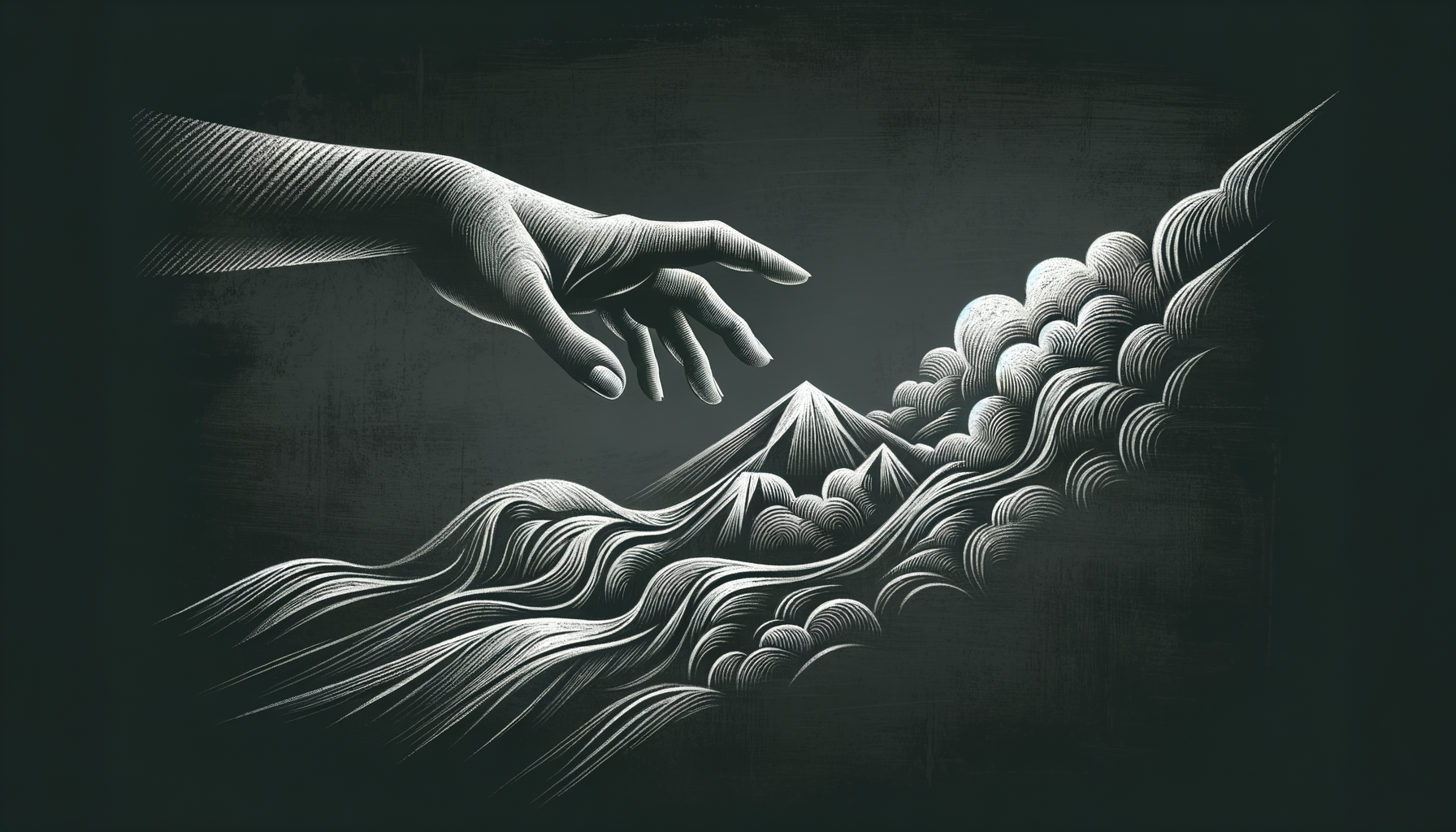I used to think fear was just something that showed up in movies—creepy clowns, doomed expeditions to the Arctic, or that one scene in The Lion King where Mufasa doesn’t make it. (Still too soon to talk about it.) But then I realized fear sneaks into everyday life in smaller, less obvious ways: the moments you hesitate before opening up to someone, the excuses you give for not trying something new, the way your heart races when you think about being truly, terrifyingly vulnerable. Fear, it turns out, is everywhere. And the scariest part? It’s often about the things we want the most.
For me, nothing screams, “RUN!” quite like being unguarded in relationships. That raw, "take me as I am" energy sends shivers down my spine faster than a bad Tinder prompt. But here’s the kicker: I’ve learned that leaning into the very things that scare me often leads to the most growth. And by “learned,” I mean “tripped over myself repeatedly until I couldn’t ignore the lesson.”
The Fear of Putting Yourself Out There
Let me set the scene: I was 25, freshly out of my university bubble, and a certified pro at keeping things surface-level. Small talk? Nailed it every time. “Hey, how about this weather, eh?”—the classic Toronto go-to. Anything deeper? Hard pass.
Then came Cara. I met her at a book launch for Canadian authors, and she managed to (gasp!) ask me questions about myself that couldn’t be answered with a shrug or a joke. Do you know how uncomfortable it is to admit anything meaningful about your life to another person? My brain screamed, “Deflect!” But instead, I surprised myself and shared pieces of my love for writing. Turns out, we connected over our mutual awe of Ondaatje’s In the Skin of a Lion and stayed until the café staff kindly hinted we were overstaying our welcome.
Here’s what that experience taught me: fear thrives in the unknown. I was so scared of being judged by somebody new, but the moment I let my guard down, I realized I wasn’t being judged at all. People want connection, not perfection (write that down, your future self will need it).
Facing That Fear:
- Start small. Share a story or a curiosity that lights you up, even in passing conversation.
- Remind yourself that your quirks, the things you think are “too much,” are often what make you magnetic to the right people.
- And if someone doesn’t vibe with your authentic self? That’s not a reflection of you—it’s just a sign they’re not your person.
The Fear of Taking Risks (AKA Doing the Thing Anyway)
If putting myself “out there” was tough, imagine what venturing out of my comfort zone felt like. As a homegrown Torontonian, I’m partial to the familiar (read: same coffee shop order, same worn-out Tragically Hip hoodie—don’t judge me). Yet life has a way of throwing curveballs wrapped in plane tickets.
When I got the chance to spend a few months living in London for work, I was thrilled—right up until I actually arrived. Finding my footing in a new city felt like fumbling around at a party where everyone already knows each other. (Also, British slang? That’s its own Olympic event.) I wanted to retreat into what was safe: calling Toronto friends, seeking spots that reminded me of home. But I didn’t.
Instead, I said yes. Yes to getting lost in markets, yes to British friends who wanted to teach me the “proper” way to eat a Sunday roast, yes to accidentally insulting someone by calling their trousers “pants” (still recovering from that one). And here’s the punchline: by leaning in, by risking looking silly or out of my depth, I unlocked experiences that reshaped me in the best ways.
How to Embrace Risks in Love and Life:
- Change your mindset. Failure isn’t the opposite of growth; it’s part of it. Each “flop” teaches you something useful.
- Try something small first. Whether that’s sipping a new kombucha flavor (which is often a gamble, to be fair) or asking that intriguing stranger about the book they’re reading.
- Celebrate the act of trying. The outcome matters less than the courage it took to show up.
The Fear of Letting Go
This one’s a doozy. If you’ve ever tried clinging to a relationship, habit, or part of your identity long past its expiry date, you know what I mean.
For me, this showed up in my early freelancing days. Writing about gentrification in Toronto wasn’t just a job—it was my identity. And while I’m proud of that work, I started saying “yes” to every project, even if my heart wasn’t in it, out of fear that letting go meant losing myself. Spoiler alert: holding on too tightly only drained the joy from what I once loved.
The same can be said about relationships. I learned this firsthand in my early twenties, staying in something safe but stagnant because I was afraid of the unknown. But here’s the mic-drop truth: letting go isn’t always an ending. It’s often a beginning—and it creates space for what’s truly meant for you.
Steps for Letting Go Gracefully:
- Be honest with yourself. What are you clinging to, and why?
- Shift your perspective. Letting go doesn’t erase the good memories—it honors them while acknowledging they belong to a different season of life.
- Take one step at a time. Whether it’s creating space to listen to your gut or calling it what it is—a move toward freedom—it’s okay to go at your own pace.
When You’re Scared, Lean In
Showing up authentically isn’t a one-and-done kind of deal. It’s messy and uncomfortable; you’ll probably second-guess yourself a hundred times along the way. But I promise you this: it’s worth it. Every fear you face has the potential to change your life—or at the very least, teach you what you’re made of.
I still wrestle with the voice in my head that says, “Play it cool, don’t try, don’t risk it.” But more often than not, I talk back. And when fear pops up (spoiler: it always does), I remind myself that it’s usually pointing toward something that matters.
So, the next time you feel that lump in your throat, the urge to run, or the instinct to hide behind a perfectly crafted façade, pause. Take a breath. Remind yourself of this one, unshakable truth: when you do the thing that scares you, you’re writing the best kind of story—the one where you grow.




















